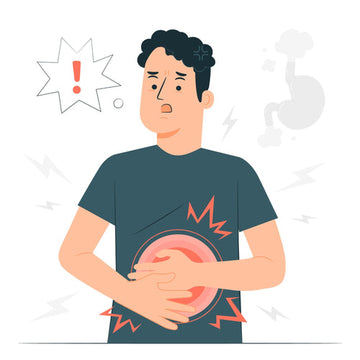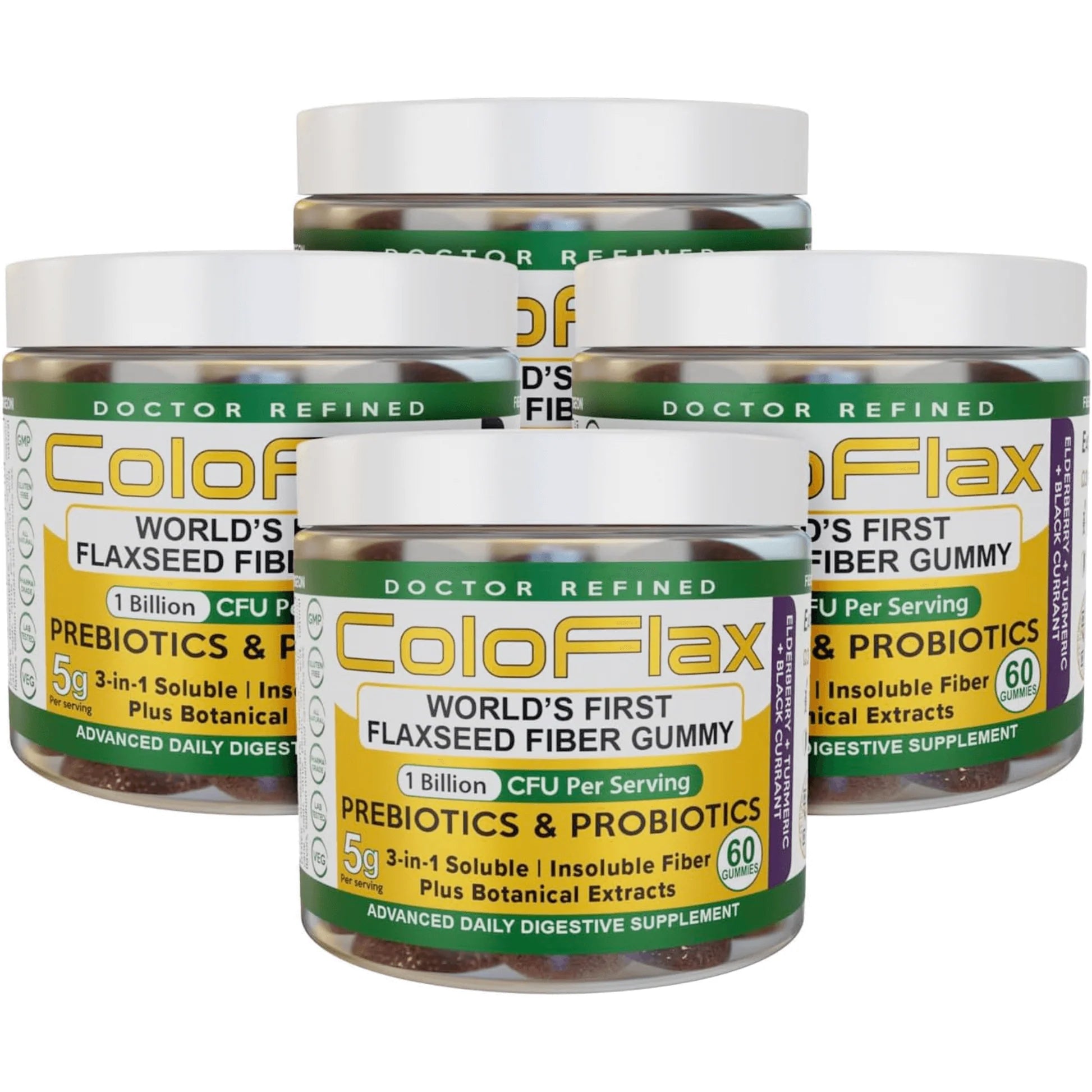Probiotics are microorganisms found in supplements and fermented foods such as yogurt and sauerkraut.
Health food companies, supplement brands, and nutritionists are constantly extolling the virtues of these bacteria, and they have been linked with a long list of health benefits. But how many of these benefits are actually based on scientific facts, and what does the research say?
The Benefits of Probiotics
The term “probiotics” covers a variety of different microorganisms, including Lactobacillus and Bifidobacterium. These organisms live in the gut, where they perform a variety of roles, including fighting off bad bacteria and keeping you healthy and strong.
You can get probiotics from food (most commonly in fermented dairy products and fermented vegetables like sauerkraut), but there are also many probiotic supplements. The benefits they provide can differ based on the user’s physiology, gut health, dose, and the quality of the supplements, but they usually include the following:
1. Probiotics Can Help with Constipation
As many as 16% of Americans suffer from chronic constipation, and it’s something that most adults struggle with on occasion.(1)
If you eat a low-fiber diet, live a sedentary lifestyle, don’t consume enough fluids, or take certain medications (including sedatives and opioid painkillers), you may experience constipation more often.
Probiotics could help with this, though as there are many causes, it’s an issue that needs to be addressed on an individual basis.
For instance, research suggests that a course of probiotics can treat constipation caused by medication and pregnancy.(2) (3)
You may also get some relief if your digestive issues are caused by a chronically poor diet or repeated courses of antibiotics, though in this case, you should look to increase your fiber intake and consume a combination of prebiotics and probiotics.
It should be noted that probiotics are not laxatives. A single dose won’t have you running for the toilet in a desperate need to relieve yourself. They work naturally and slowly, providing you with relief over a period of time and helping you to restore your natural digestive balance.
2. Probiotics Can Help with Diarrhea
Probiotics are commonly used in the treatment of antibiotic-associated diarrhea, and may also help with diarrhea caused by other factors.(4)
Antibiotics are life-saving drugs with very few side effects. They are used to treat bacterial infections and they are also prescribed post-surgery to prevent complications. But in some cases, especially after chronic use, they can cause digestive issues.
Not only do antibiotics kill the bacteria responsible for life-threatening infections, but they can also kill the healthy bacteria in your gut. It throws your gut microbiome out of whack and can lead to a variety of digestive issues and health complaints, including diarrhea.
Probiotics help to restore this balance and when used in combination with prebiotics (on which your gut bacteria feeds), it can remedy the issue.
Taking a fiber supplement that combines probiotics and prebiotics (such as ColoFlax) can also help.
We often associate fiber with bowel movements, and so we tend to avoid it when we have diarrhea.
After all, the last thing we want is more fuel for the fire.
But fiber doesn’t stimulate a rapid bowel movement. It actually works by forming a “plug” that slows the transition of waste through your bowel. This allows your body to draw more water out of the waste and creates bulkier stools. In other words, fiber is the solution, not the problem, and it can work wonders when consumed in combination with probiotics.
3. Probiotics Can Improve Cardiovascular Health
Probiotics could help to improve cardiovascular health by lowering LDL cholesterol levels, known as “bad” cholesterol. It has been theorized that probiotics break down bile in the gut, thus preventing it from being reabsorbed as cholesterol.(5)
A meta-analysis conducted in 2000 looked at 6 different studies and found that fermented yogurt products could reduce levels of LDL cholesterol by 5%.(6)
It has also been suggested that probiotic foods could reduce high blood pressure.
The results seen in these studies have been modest, at best. But heart disease is the biggest killer in the United States and is responsible for 1 in 4 deaths.(7) What’s more, the treatment and management of heart disease is a multi-billion dollar industry and involves the use of prescription drugs and risky surgeries.
Probiotics are cheap, safe, and widely available, so any help they can provide is noteworthy.
4. Probiotics Can Help With Weight Loss in Women
In 2018, researchers gave a probiotic formula to a group of obese men and women, put them on a calorie-controlled diet, and then measured their weight loss over a period of 12 weeks. They also put a placebo group on the same diet.(8)
At the end of the 12-week period, they noted very few changes in the male participants, with similar bodyweight recordings in both the placebo group and the probiotic group. But there was a notable difference among the female participants, as those who had been given probiotics lost over 50% more weight than the placebo group.
Other studies have drawn similar conclusions, and the general consensus is that probiotic supplements—or increased consumption of probiotic foods—can support steady and healthy weight loss.
The jury is out as to why this happens, but there are a few theories.
It could be that the probiotics are preventing certain fats from being absorbed. It could be that having a healthier gut makes you more prone to taking regular exercise and less prone to binging on calorie-dense food. After all, if you feel bloated, gassy, and uncomfortable, you’re less likely to go for a walk or a jog.
Hunger may also play a role, as it has been suggested that probiotic supplementation increases satiety, making you feel fuller for longer. The same is true for a high-fiber diet, and for pretty much the same reason.
5. Probiotics Can Boost The Immune System
Healthy gut bacteria could help to fight off infections. It’s one of the reasons healthy bacteria are so healthy in the first place.
A study on Finnish children aged between 1 and 6, found that Lactobacillus GG—one of the most common strains of probiotic—reduced the risk and severity of respiratory infections.(9)
This randomized, double-blind study gave fortified milk to 571 children and then reported on how many days of school they missed due to illness, noting a 16% reduction in the probiotic group.
A study on women showed that probiotics could also reduce the recurrence of urinary tract infections (UTI), with 15% of the probiotic group reporting a recurrence compared with 27% of the control group.(10)
6. Probiotics Could Help with Digestive Disorders
As you may have assumed, many of the benefits of probiotics are related to digestive health. In addition to keeping you regular and helping with diarrhea, constipation, bloating, and gas, it could be used to alleviate the symbols of ulcerative colitis and other digestive disorders.
One of the biggest and most interesting studies concerning these benefits was conducted in 2004.(11) It assigned 327 patients into two groups, giving one group a probiotic drug and the other a drug known as mesalazine, which is commonly prescribed for ulcerative colitis and Crohn’s.
The study ran for 12 months, after which researchers calculated the total number of relapses. Interestingly, they found very little difference between the two groups. The mesalazine group reported fewer relapses (33.9%) than the probiotic group (36.4%), but not by a statistical significance.
The news isn’t as promising for sufferers of Crohn’s disease, which doesn’t seem to respond as well to probiotic treatment, but probiotics have been suggested as a complementary treatment for a host of inflammatory bowel diseases.
7. Probiotics Can Reduce Allergy Symptoms
In 2012, researchers studied whether probiotics consumed during pregnancy and breastfeeding could reduce the prevalence of eczema in infants.(12)
They took 241 mother and infant pairs and gave the mothers either a placebo or a probiotic two months prior to delivery and two months after. They then followed up with the babies for the first two years of their lives.
Not only did they find a significant reduction in eczema risk, but they reported no adverse effects in either the babies or their mothers.
It’s not just eczema, either, as probiotics could help to prevent and treat a host of different allergies. Gut flora plays a very important role in protecting the body from external threats and reducing inflammation. These bacteria have even been studied for their effects on reducing inflammatory responses in people who suffer from dairy intolerances.
8. Probiotics Could Improve Mental Health
There is a close link between your gut health and your mental health, and not just because you tend to feel better when you’re not constipated or bloated. Several studies have found links between probiotic use and reduced rates of anxiety and depression. One of the most notable of these studies was conducted in 2016.(13)
The study was conducted on 70 petrochemical workers who were divided into three groups and given either placebos (in the form of conventional yogurt), probiotic capsules, or probiotic yogurts.
Prior to the study, participants were asked to complete a general health questionnaire and then given a DASS score (Depression Anxiety and Stress Scale). Those who had been given probiotics recorded notably improved DASS scores, suggesting improvements in depression, anxiety, and stress levels. Those given the conventional yogurt did not notice any changes.
It should be noted that most studies have been conducted on individuals not reporting any symptoms of clinical depression or anxiety. It’s unlikely that a probiotic supplement will cure your chronic depression or generalized anxiety. However, it could play a complementary role.
It may also reduce the risk of further problems developing.
As noted in a 2015 study on the role played by microbiota in cognitive and affective functioning, there is a hypothesis that “probiotic supplementation may act as an adjuvant strategy to ameliorate or prevent depression.”(14)
And as with all benefits associated with probiotics, it’s made even more promising by the low risk of side effects and the fact that it can be used alongside existing treatments.
Summary: Benefits of Probiotics
Research suggests that friendly bacteria could help to restore the balance of gut flora, helping with everything from digestive issues to cardiovascular problems and more. Probiotic supplements are safe and well-tolerated, and you can also get your fill of these healthy bacteria from fermented foods.
There’s no guarantee that you’ll experience the aforementioned benefits, but if you’re suffering from an imbalance in your digestive flora, you’ll almost certainly notice an improvement.
References
- https://www.ncbi.nlm.nih.gov/pmc/articles/PMC5976340/
- https://www.ncbi.nlm.nih.gov/pmc/articles/PMC5739119/
- https://www.ncbi.nlm.nih.gov/pmc/articles/PMC5294450/
- https://pubmed.ncbi.nlm.nih.gov/22570464/
- https://pubmed.ncbi.nlm.nih.gov/16517616/
- https://pubmed.ncbi.nlm.nih.gov/11114681/
- https://www.cdc.gov/nchs/fastats/heart-disease.htm
- https://pubmed.ncbi.nlm.nih.gov/24299712/
- https://pubmed.ncbi.nlm.nih.gov/11387176/
- https://pubmed.ncbi.nlm.nih.gov/21498386/
- https://pubmed.ncbi.nlm.nih.gov/15479682/
- https://pubmed.ncbi.nlm.nih.gov/23083673/
- https://pubmed.ncbi.nlm.nih.gov/25879690/
- https://pubmed.ncbi.nlm.nih.gov/25862297/






